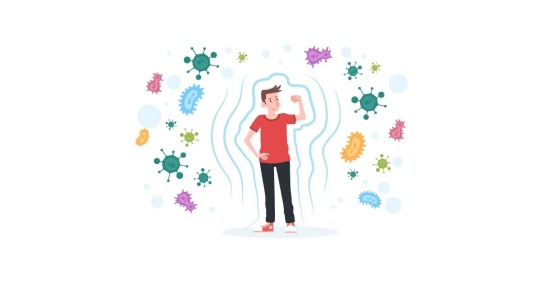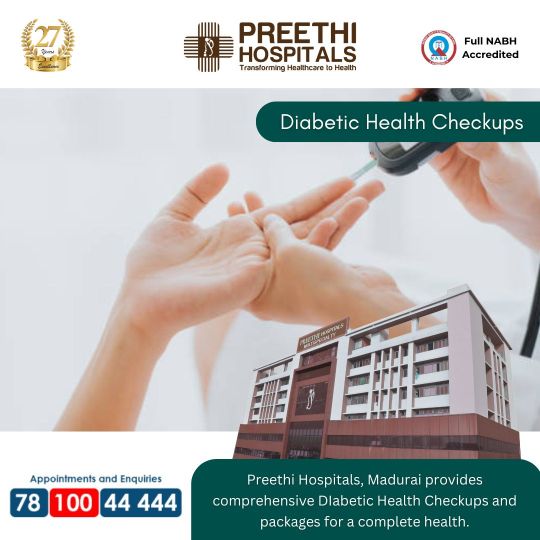#yoga for diabetes and cholesterol
Explore tagged Tumblr posts
Text

Yoga Asanas for Managing Diabetes
The most powerful tools in managing diabetes is Yoga. Yoga is good for the entire body, improving muscular strength and endurance, balance and flexibility, and releasing stress.
Here is a list of the top ten asanas: https://www.freedomfromdiabetes.org/blog/post/top-10-yoga-asanas-for-managing-diabetes/2611
#yoga for diabetes#yoga asanas for diabetes#yoga for diabetes type 2#yoga exercise for diabetes#yoga for diabetes control#yoga poses for diabetes#yoga for diabetes cure#yoga for diabetic patient#yoga and diabetes#diabetes and yoga benefits#yoga and type 2 diabetes#yoga for diabetes and cholesterol#yoga and pranayam for diabetes#yoga and diabetes research
0 notes
Text
Top 10 Yoga Asanas for Managing Diabetes
This article is originally published on Freedom from Diabetes website, available here. With the continuing spate of diabetes cases, doctors and patients alike search for new ways to tackle the disorder. A process for complete diabetes reversal that includes diet, exercise, and stress management to bring about a behavioral transformation that can help diabetics reverse their condition and sustain it.

And one of the most powerful tools in this process is Yoga. We can say Yoga is the best medicine for this. Daily practice of yoga and pranayama can help in many ways, such as reducing blood sugar levels, regulating blood pressure, and lowering the risk of heart problems. Also help in improving muscular strength and endurance, balance and flexibility, and releasing stress.
Yoga and diabetes:
The basic cause for diabetes is insulin resistance, a condition where the body either doesn’t produce sufficient insulin or is unable to use the insulin produced by the pancreas. Insulin resistance is responsible for a host of so-called ‘lifestyle disorders’, including, among others, BP, high cholesterol, PCOD/S, and of course, diabetes. Lets understand causes of insulin resistance, three are diet-related, two relate to exercise and one is, stress.
These poses activate your parasympathetic system, helping dissipate stress a key factor in fat storage. The poses also work on your visceral organs the pancreas, liver, kidney, in particular, all key organs in regulating blood sugar. Another area where these asanas have a major impact is the digestive tract. By improving blood flow to this area, the asanas help the body to maintain a healthy and balanced gut microbiome a key element in avoiding nutrient deficiency.
Here is a list of the top ten asanas, you should try and include in your daily practice
Surya Namaskar: Suryanamaskar improves blood circulation, improves spine health, increases muscular strength, lung capacity, and the management of insulin.
Padhastasana (hand under foot pose) - It stimulates your viscera and strengthens the abdomen, improving its efficiency.
Pavanamuktasana (wind removing pose)- This asana too has a great effect on your visceral organs, massaging the pancreas, liver, spleen, and colon
Shalabhasana (locust pose)- This exercises for your leg muscles tremendously.
Mandukasana (Frog Pose)- A powerful hip-opening movement, the mandukasana exerts pressure on the pancreas and liver.
Adho mukha svanasana- It relaxes your body, relieving stress. It is said to improve hearing, eyesight, and even hair growth!
Ardha Matsyendra Asana- It has a massaging effect on the pancreas, liver, and stomach, improving BSL management and digestion.
Bhujangasana (Cobra Pose)- The cobra pose brings many benefits, beyond the obvious one of spinal health
Santulanasana - This is a powerful strengthening pose for the arms, chest, back, triceps, leg, and core.
Butterfly pose - It improves posture, enhances spine health, and strengthens the muscles of the lower back, hips.
Yoga is not just a panacea, it is a lifestyle that brings many holistic benefits to the mind, body, and soul. Every asanas and pranayama technique brings its own special benefits.Yoga is one of the most cost-effective routines you can find, and you can practice it just about anywhere. To read more, click here. Also please connect with me on my website, Facebook page, and YouTube if you want to stay in touch or give me any feedback!
#yoga for diabetes#yoga asanas for diabetes#yoga for diabetes type 2#yoga exercise for diabetes#yoga for diabetes control#yoga poses for diabetes#yoga for diabetes cure#yoga for diabetic patient#yoga and diabetes#diabetes and yoga benefits#yoga and type 2 diabetes#yoga for diabetes and cholesterol#yoga and pranayam for diabetes#yoga and diabetes research
0 notes
Text

If you are suffering from high cholesterol and want to get natural treatment, then Svasthvida will be the best choice for you. Here you will get Ayurvedic treatment for High Cholesterol in India using natural methods. Our specialized team of Ayurvedic doctors will provide personalized care and prescribe Ayurvedic medicine for High Cholesterol in India (उच्च कोलेस्ट्रॉल के लिए आयुर्वेदिक दवा) to help you manage your cholesterol levels effectively. 𝐂𝐨𝐧𝐭𝐚𝐜𝐭 𝐔𝐬 𝐭𝐨 𝐁𝐞𝐠𝐢𝐧 𝐘𝐨𝐮𝐫 𝐀𝐲𝐮𝐫𝐯𝐞𝐝𝐢𝐜 𝐇𝐞𝐚𝐥𝐢𝐧𝐠! ➡️𝐂𝐚𝐥𝐥/𝐖𝐡𝐚𝐭𝐬𝐀𝐩𝐩: 099143 21828 ➡️𝐄-𝐦𝐚𝐢𝐥: [email protected]
#ayurveda#yoga#ayurvedalifestyle#health#ayurvedic#healthylifestyle#ayurvedalife#wellness#ayurvedaeveryday#ayurvedicmedicine#natural#india#cholesterol#diabetes#heartdisease#bloodpressure#weightloss#fitness#healthyliving#highbloodpressure
0 notes
Text
Current rambling thoughts on dieting/weight loss, nothing that's a downer:
Back in April I got blood test results that showed my cholesterol was high and my sugar was barely shy of being diabetic. It spooked the shit out of me, as despite being fat most of my life, I was also pretty healthy and somewhat active. It was after getting covid that I was so fatigued I dropped the active thing pretty much entirely.
The doctor was more focus on the sugar, and recommended cutting back simple sugars, adding in more fiber, and increasing my weekly activity.
I'd been wanting to get back into shape for a long, long time but I've been nervous about trying the gym again. My dad was one of those shithead people that secretly films people in the gym doing things 'wrong' or committing the sin of being fat in public. It had me terrified of trying to get fit where other people could see me, because you know, most people don't want to be mocked.
Lucky me, I have the most amazing, supportive girlfriend ever. She took me by the hand and very gently showed me around the gym, helped me learn how to use the machines, and didn't mind when I shadowed her around as she did her workout. From there, I got excited! I used to LOVE working out, I just mostly did simple stuff, running, and swimming. I did a lot of WiiFit when I was younger, and this one Jillian Michael's DVD I found at Walmart for like $5 at the time. Running was the big one though (hello Zombies, Run folks).
So just making those changes (less soda, more fiber, more exercise) over the course of maybe 3ish months I dropped almost 15 lbs. I hadn't been tracking my weight, but I did compare the results the doctor took from my previous three appointments. I was kind of shocked! I've never had a healthy relationship with weight loss, and every time I've tried to lose weight it lead to a lot of heartache, misery, and doubled weight gain. So I more or less wrote off my ability to trim down and decided to just be fat and happy.
I will say though, the extra bulk has recently frustrated me. I can't do yoga the way I used to. My limbs are still flexible but I keep getting blocked by my own fat. I have to go real easy on my joints because of all the extra weight, which is frustrating, because I'd honestly love to try jogging again. I just don't want to fuck my back and knees up again.
I decided to give losing weight another try, with a lot more self-love, after a lot more research, and with the support of someone who has loved me even at my fattest and never said a word about it.
It hasn't been too hard this time. I don't feel like I'm depriving myself. I am impatient, I want to see results NOW, but obviously that's not how things work. And slow is better anyway.
I know tumblr has a generally negative view on weight loss, and I fully include myself in that. I bought into the 'starvation mode means you'll never ACTUALLY lose weight permanently) thing, I was convinced anyone trying to lose weight had the same disordered ideas on it that I used to have (and still struggle with sometimes). It's a loaded topic for a hundred reasons, so I am trying to be conscious of when I talk about it and around who. Hence the tags and putting it under a cut. I'm happy and excited to be trying this out, putting my health first, trying to feel strong and capable in my body, but I absolutely know first hand how upsetting hearing about dieting can be. Not to mention how hard it is to avoid the more toxic side of trying to change your diet and fitness.
I've found a lot of resources that are very facts based, cut and dry, and leave out the moralizing behind weight loss and weight gain and just weight in general. There are a lot of very encouraging resources as well.
So yeah! As said, this is just a ramble, I like to write to get my thoughts down, and it always comes easier when it feels like I'm talking to someone, not just myself. I probably won't post a lot about this, but it's been just over a week since I started tracking my food and daily weight specifically, which always used to be something that would send me into a bad habit spiral. This time feels different. I've been doing fine. There have been a few moments of disappointment, but they've been easy to shake off. Mostly I'm just astounded to learn more about the macros involved in the food I eat, and I'm also happy to have tools to help me find portions that make me feel full and not stuffed. On the days I've been not kept to my deficit goals, it was because I was hungry and decided it was more worth it to feed myself than stick to a number and I didn't feel a bit of guilt about it afterward.
I'm pretty pleased with how it's going so far. I feel stronger, I feel more energetic, and tracking my food intake and weight makes the part of my brain that loves a spreadsheet very happy.
#darling speaks#dieting cw#weight loss cw#I really should have gone into some sort of data organizing field#I fucking love a spreadsheet#love a formula#love a CHART
10 notes
·
View notes
Text
Ayurveda , Doctor , Treatment , Nadi Pariksha , Medicine , Pure Herbs , Sri Sri Tattva , The Art of Living ,Sudarshan Kriya , Yoga , Meditation

Sri Sri Tattva Nadi Pariksha
youtube
“Ayurveda” is being recognized as a holistic system of medicine, Which holds that the body is the foundation of all Wisdom and Source of all Supreme Objectives of life.Ayurveda” have effective treatment for, Asthma, Mental Tension , Spinal Disorders , High blood pressure ,
Mental Stress, Spondylosis , High Cholesterol , Fatigue , Obesity , Headaches , Respiratory Problems , Heart Diseases , Migraine , Gastric Complaints , Chest Pain , Arthritis , Weight Loss , Osteoarthritis , Body Purification , Gynecological Disorders , Rheumatism , Anti-ageing , Chronic Constipation , Speech Disorders , Piles , Back Pain , Nervous Disorders , Hair Loss , Gout , Premature Graying , Skin Diseases , Psoriasis , Insomnia , Memory Loss , Pain , Gastric Problems , Immunity Problems , Anemia , Acne , Anorexia , Anxiety , Acidity , Bronchitis, Diabetes , Dyspepsia , Dysentery , Dandruff , Depression , Diarrhea , Dengue , Chikungunya , Indigestion , Urinary bladder disorder , Fungal infection , Nasal Congestion , Gum and Tooth diseases , Vitiation of blood , Burning Sensation , Oedema , Emaciation , Impotency , Inflammation , Ulcer , Thirst , Chloasma of face , Tastelessness , Pleurodria , Intercostal neuralgia , Pthisis , Vitiation of semen , Sciatica , Filariasis , Tumour , Intermittent fever , Lassitude , Hoarseness of voice , Mole , Conjunctivitis , Glaucoma , Myopia , Repeated Abortion , Duodenal ulcer , Malabsorption syndrome ,
youtube
Eczema , Flatulence , Fever , General Debility , Irregular Menstrual Cycle , Jaundice , Hepatitis , joint Pain , Kidney stone , Leucorrhea , Leukoderma ,
Liver Disorder , Menopause , Premenstrual Tension , Pyorrhea , Peptic Ulcer ,
Palpitation , Rheumatism , Ringworm , Stress Management , Sinusitis , Sore Throat , Skin Allergy , Sciatica , Sleeplessness ,Toothache , weight ,
Urinary Diseases , Vertigo , infection , Restlessness , Hypertension ,
Malarial Fever , Cough , Cold , Pimples , Black Heads , Appetite problem , Vomit , Eye problems , Abdominal fever , Abdominal lump ,
Swelling , Fibroid , Cyst , Bleeding , Infertility in men and women ,
Pneumonia , Curing Dryness , wounds, cuts, & burns .
Consult a certified Doctor for more details on Ayurvedic Treatment.
youtube
Sri Sri Tattva Ayurvedic Proprietary Medicine , Single Herbs and Classical Medicine at Glance to Promote Health and Wellness
NAOQ19
AMLAPITTARI VATI ,
AMRUTADI VATI ,
ANCHOLEAN TABLETS,
ATISARAHARA VATI ,
DEVA VATI ,
IMMUGEN TABLETS,
JANTUGHNA VATI ,
JVARA KEERTI VATI ,
KASAHARA VATI ,
LIV-ON TABLETS,
MAMATVA GRANULES ,
MEHANTAKA VATI ,
NARAYANA KALPA TABLET ,
NAVAHRIDAYA KALPA TABLETS,
OORJA FORTE TABLETS,
OORJA TABLET ,
OSPO-C TABLETS ,
PAVANAHARA VATI ,
PITTA BALANCE GRANULES ,
PRADARASHAMAKA VATI ,
PRANADA GUTIKA ,
PRATISHYAYAHARA VATI ,
PYLMUKTI OINTMENT ,
PYLMUKTI TABLET ,
QUICK HEAL CREAM ,
RAKTASHODHINI VATI ,
RAKTAVARDHINI TABLET ,
RAKTAVARDHINI SYRUP ,
SANDHIMITRA VATI ,
SHIRASHOOLARI VATI ,
SHWASA SHUDDHI VATI ,
TWAQURE OINTMENT ,
VEDANANTAKA BALM ,
VEDANANTAKA LINIMENT ,
VEDANANTAKA VATI ,
VIRECHANA VATI ,
VRIKKA SANJIVANI VATI ,
VITILWEL OINTMENT ,
VITILWEL TABLETS ,
AMLA TABLETS ,
AMRUTH TABLETS ,
ARJUNA TABLETS ,
ASHWAGANDHA TABLETS ,
ASHWAGANDHADI TABLETS ,
BRAHMI TABLETS ,
CHANDRAPRABHA VATI ,
CHITRAKADI GUTIKA TABLETS ,
DHATRI LAUH TABLETS ,
HARITAKI TABLETS ,
KAMADUDHA RASA TABLETS ,
KAPIKACCHU GRANULES ,
LAVANGADI VATI ,
NAVAYASA LAUHA TABLETS ,
NEEM TABLETS ,
NISHAMALAKI TABLETS ,
RASNADI VATI ,
SAPTHAMRUTH LAUHA TABLETS ,
SHATAVARI TABLETS ,
SHILAJIT LAUHA VATI ,
SUDARSHAN VATI ,
TRIPHALA TABLET ,
TULASI TABLET ,
VYAGHRYADI TABLET ,
YASHTIMADHU TABLET ,
GOKSHURADI GUGGULU ,
KANCHANARA GUGGULU ,
MAHAYOGRAJ GUGGULU ,
TRAYODASHANGA GUGGULU ,
AVIPATTIKARA CHURNA ,
HARIDRA KHANDA ,
HINGVASTAKA CHURNA ,
PAVANHARA CHURNA ,
SITOPALADI CHURNA ,
TALISADI CHURNA ,
TRIPHALA CHURNA ,
BRAHMA RASAYANA ,
CHITRAKAHARITAKI LEHYA ,
KUSHMANDA RASAYANA ,
NASYA NASAL INHALER ,
SRINETRA STERILE EYE DROPS,
SUDANTA TOOTH DROPS ,
KASAHARI COUGH SYRUP ,
MEDHYA RASAYANA SYRUP ,
PACHANI RASAYANA SYRUP ,
PRADARASHAMAKA SYRUP ,
RAKTASHODHINI ARISHTA ,
SARIVA SYRUP ,
USHIRA SYRUP ,
MAHATRIPHALADYA GHRITA ,
PHALASARPI ,
GOMUTRA ARKA ,
GULMAHARA ARKA ,
ORGANIC AJAMODA ARKA ,
ORGANIC TULASI ARKA,
SANDHIMITRA ARKA,
SHAKTI DROPS,
VRIKKA SANJIVANI ARKA ,
ANU TAILA,
KSHIRABALA TAILA,
NARAYANA TAILA,
PINDA TAILA,
SHISHU TAILA ,
OJASVITA RAGI,
PRADARSHAMAKA VATI,
ALOE VERA JUICE ,
AMLA JUICE,
ALOE VERA TRIPHALA JUICE,
KARELA JAMUN JUICE
KABASURA KUDINEER TABLETS,
KABASURA KUDINEER CHOORNAM ,
TURMERIC PLUS TABLETS ,
GILOY JUICE ,
GILOY TULASI JUICE
AYUSH KWATH TABLETS ,
SUDANTA TABS ,
AYUKANTI LEHYAM ,
OJASVITA GOLDEN LATTICE .
KALAMEGH TABLETS ,
AYUSH - 64 ,
SHANKHPUSHPI TABLETS ,
SUKESHA KALPA TABLETS ,
SUKESHA HAIR VITALISER CREAM ,
Giloy juice
Giloy Tulasi Juice
CHYAWANPRASH ,
ALMOND OIL VEG CAPSULE ,
EVENING PRIMROSE OIL VEG CAPSULE ,
FENUGREEK OIL VEG CAPSULE ,
FLAXSEED OIL VEG CAPSULE ,
GARLIC OIL VEG CAPSULE ,
NIGELLA OIL VEG CAPSULE ,
WHEAT GERM OIL VEG CAPSULE ,
APPLE CIDER VINEGAR JUICE ,
WHEATGRASS JUICE ,
MOORINGA JUICE ,
RAW NONI JUICE ,
Brahmi Vati Suvarnayukta
Bruhat Vata Chintamani Rasa
Mahalaxmivilas Rasa
Shwaskas Chintamani Rasa
Sootashekhar Rasa ( Gold)
Suvarna Vasant Malati
Vasant Kusumakar Rasa
Yogendra Rasa
#Rejuvenate yourself with Ayurveda and Yoga Campaign#Ayurveda#Doctor#Treatment#Nadi Pariksha#Medicine#Pure Herbs#Sudarshan Kriya#Youtube
2 notes
·
View notes
Text
Healthful Exercise: Tips and Techniques

To maintain general health and wellbeing, one must lead an active lifestyle. Exercise can enhance mental health and reduce stress in addition to preventing chronic conditions including heart disease, diabetes, and obesity. Yet, starting started with exercise can be difficult and it can be stressful to know what exercises to do and how to do them. We’ll provide you advice and ideas in this post on how to include exercise into a healthy lifestyle.
Importance of Exercise
A healthy lifestyle must include regular exercise. Frequent exercise lowers the chance of developing chronic diseases, improves mental health, and helps maintain a healthy weight. Moreover, exercise contributes to increased muscle flexibility and strength, which can lower the chance of injury and enhance overall quality of life.
Cardiovascular Health
Any action that increases your heart rate and gets your blood pumping is considered cardiovascular exercise, commonly referred to as aerobic exercise. By enhancing circulation, strengthening the heart muscle, and lowering the risk of heart disease, cardiovascular exercise helps to promote heart health.
Maintaining a Healthy Weight
Because it increases metabolism and burns calories, regular exercise aids in maintaining a healthy weight. In addition to burning calories during exercise, lean muscular mass can boost resting energy expenditure.
Mental Health
Exercise is beneficial for both physical and mental wellbeing. Frequent exercise helps to lower stress, enhance mood, and lessen the signs of sadness and anxiety.
Chronic Diseases
The chance of developing chronic conditions including heart disease, diabetes, and obesity can be lowered with regular exercise. Exercise improves insulin sensitivity, lowers cholesterol, and lowers blood pressure.
Tips for Starting Exercise
Starting an exercise routine can be challenging, but there are several tips that can help you get started and stay motivated.
Set Realistic Goals
Establishing attainable objectives is crucial for sustaining motivation and advancing. Set simple, doable goals to begin with, then progressively increase the duration and intensity of your workouts.
Start Slowly
Beginning cautiously might lessen the chance of injury and save you from getting burned out. Start out with low-intensity workouts like walking, swimming, or cycling, and as your fitness level rises, progressively up the ante.
Find an Exercise Buddy
Exercise with a buddy or member of your family can help with accountability and inspiration. Exercise can also be more enjoyable and exciting with a training companion.
Mix It Up
When it comes to fitness, variety is crucial. To avoid boredom and keep your body challenged, change up your regimen. Exercise in various ways, including aerobic, weight training, and flexibility activities.
Listen to Your Body
It’s critical to pay attention to your body when beginning an exercise regimen. Whenever you feel pain or discomfort, stop and rest. A healthcare practitioner should be consulted before beginning any new workout regimen.
Techniques for Effective Exercise
In addition to the tips for starting exercise, there are several techniques that can help to make exercise more effective and efficient.
High-Intensity Interval Training (HIIT)
Short bursts of intense activity separated by rest intervals are known as high-intensity interval training, or HIIT. HIIT has been demonstrated to be a successful method for burning calories, enhancing cardiovascular health, and increasing lean muscle mass.
Strength Training
A comprehensive workout programme must include strength training. Lean muscle mass, which strength training helps to develop, can boost metabolism and improve overall body composition.
Stretching
Maintaining flexibility and lowering the risk of injury require stretching. Stretching can help you increase your range of motion and relieve tension in your muscles during exercise.
Mind-Body Exercise
Mind-body exercises such as yoga, tai chi, and Pilates can help to improve flexibility, balance, and overall body awareness
Group Exercise Classes
A fun and effective approach to get in shape is to enrol in group fitness courses like dance, aerobics, and spin classes. A sense of camaraderie, motivation, and accountability are all provided by group exercise courses.
Outdoor Activities
Outdoor pursuits like riding, swimming, and hiking can offer a stimulating and demanding workout. Outdoor pursuits offer a chance to take in the scenery, breathe clean air, and soak up some sunshine.
Conclusion
A healthy lifestyle must include regular exercise. Frequent exercise can lower the chance of developing chronic diseases, improve mental health, maintain a healthy weight, and improve cardiovascular health. Exercise can be difficult to begin, but you can make it a part of your healthy lifestyle by setting reasonable objectives, beginning slowly, and varying your routine. Exercise can be made more effective and pleasurable by including strategies like HIIT, weight training, stretching, mind-body exercises, group exercise programmes, and outdoor activities.
#Healthful Exercise#healthy exercise#healthy workouts#health#healthy#workouts#exercise#best workouts#best exercises
5 notes
·
View notes
Text
What are 7 ways to boost your immune system?

Immune system is the body’s defence mechanism that helps in fighting with different life threatening microscopic organisms, chronic diseases and disorders.
Duties and responsibilities towards family members and society, financial pressure and stress do not let us think and act in a positive way and stay healthy.
Such unavoidable circumstances are taking control of our life. We are inclined towards eating fast and processed food items, smoking nicotine and different types of prohibited drugs and drinking alcohol.
As a result, we do find ourselves trapped in different diseases in different parts of the body.
Let’s understand the signs of weak immune system and these are:
a) Constantly suffering from cough and cold.
b) High level of stress
c) Excessive stomach problem
d) Wounds not easily healing.
e) Intense infections.
f) Easily getting tired.
Instead of spending huge amounts of money on medicines and treatment of the immunocompromised diseases like cancer, diabetes, hepatitis and other intestinal disorders, it is recommended to rely on Ayurveda. In fact, Ayurveda happens to be rewarding for your health. To achieve strong immune system, you need to maintain:
a) Healthy liver function.
b) Good digestive ability.
c) Good hormonal and ojas balance.
d) Strong metabolism
Ayurveda would suggest you to go for simple steps for boosting immunity in the body
a) Maintaining a proper diet: It is the foremost thing to maintain healthy immune system. Depending on the deficiency of kapha, vat and pitta doshas, you must actually select and eat the right food items. Most important thing is to boost and protect ojas and that is by consuming different types of nuts, raisins, dates, saffron and ghee. Adding garlic in your regular diet will help in removing toxins from the body and help you to fight cough and cold.
b) Adequate sleep: Depending on the health condition , there is a need for proper balanced sleep. If you are suffering from kapha dosha then you must have 6 to 7 hours of sleep. Person suffering from vata dosha would require 8 hours of sleep. It will help in recovering from any type of joint pain. Person undergoing the problem of pitta dosha would have moderate sleep, not high as a vata dosha patient nor little as kapha dosha..As per the studies of researchers, adequate amount of sleep reduces the development of cancer.
c) Waking up early: Coming in contact with the rising sun boosts Vitamin D for the body. Further, it sharpens your memory and keeps your body and mind active.

d) Exercise and yoga: Regular exercise and yoga in the morning hours before taking bath and breakfast will help in bringing relief from the toxins from the body. It will boost blood circulation and good gut health. Dancing, swimming, running, doing push ups and squatting are some exercises that one can adopt and practice on a daily basis. One can deal with cough and cold and nerve related disorders with the help of pranayama or simple breathing exercise.
e) Reduce stress: To wipe out the stress level from the body, you can engage in the activities that appeal to you or you find them interesting. You can travel to your favourite destination where you can get the opportunity to connect with nature. Meditation is another way of fighting stress. Ayurveda suggests to go for herbal steam therapy to reduce the stress hormone, boost blood circulation and nerves of the brain and body. Oil massage on the body and forehead is highly effective in reducing stress.
f) Manage rising weight: Weight management is another way to control obesity. To stay healthy for a long period of time, one should not be too obese or too thin. Or else, you will suffer from cardiovascular problems, high cholesterol and high blood pressure. Too much thinness will lead to deficiency of iron, vitamins and other necessary nutrients.
g) Staying hydrated: Drinking 8 to 12 glasses of water will cleanse the body from the toxins, boost healthy bowel movement and control dehydration, diarrhea and intestinal disorders
Above mentioned ways strengthen your immune system. As per the experts’ opinion, your strong bonding with nature will help to gain key to healthy life.
#public health#yoga#immune system#health tips#health#healthy lifestyle#obesity#stress#immunity booster
6 notes
·
View notes
Text
Why Women’s Wellness: Understanding High Cholesterol and Heart Disease in Women
At Access Health Care Physicians, LLC, we prioritize women's wellness and recognize the unique health challenges they may face. In this article, we delve into the critical topic of high cholesterol and heart disease in women, shedding light on the importance of understanding these conditions to promote better heart health.
Introduction:
Heart disease is a leading cause of mortality among women worldwide. While it has long been associated with men, women also face significant risks related to heart health, particularly concerning high cholesterol levels. Understanding the connection between high cholesterol and heart disease is vital for empowering women to make informed decisions about their health.
The Impact of High Cholesterol on Heart Health:
Cholesterol is a waxy, fat-like substance that our bodies need to build healthy cells. However, when cholesterol levels become elevated, it can lead to the accumulation of fatty deposits in the arteries, restricting blood flow to the heart. This condition, known as atherosclerosis, significantly increases the risk of heart disease and related complications.
Unique Risk Factors for Women:
Women may experience specific risk factors for high cholesterol and heart disease that differ from those of men. Some of these risk factors include:
Hormonal Changes: Hormonal fluctuations throughout a woman's life, such as during pregnancy, menopause, and the use of hormonal birth control, can impact cholesterol levels and heart health.
Smoking: Smoking is a prominent risk factor for heart disease in women. Female smokers face a higher risk of heart attacks and other cardiovascular issues.
Diabetes: Women with diabetes are at an increased risk of developing heart disease compared to men with diabetes.
Sedentary Lifestyle: Physical inactivity can lead to weight gain and unfavorable changes in cholesterol levels, contributing to heart disease risk.
Stress and Depression: Chronic stress and depression have been linked to higher cholesterol levels and an increased risk of heart disease in women.

Recognizing Symptoms in Women:
Women may experience different heart attack symptoms than men. While chest pain is a common symptom for both genders, women may also present with other signs, including:
Pain or discomfort in the neck, jaw, or upper back
Shortness of breath
Nausea or vomiting
Lightheadedness or fainting
Pain or discomfort in one or both arms
It is essential for women to be aware of these symptoms and seek immediate medical attention if they experience any of them.
Preventive Measures for Women's Heart Health:
Preventing heart disease begins with proactive lifestyle choices and regular health checkups. Here are some preventive measures that women can take to improve heart health:
Healthy Diet: Adopt a balanced diet rich in fruits, vegetables, whole grains, lean proteins, and healthy fats. Limit the intake of saturated and trans fats, as they can contribute to elevated cholesterol levels.
Regular Exercise: Engage in regular physical activity, such as walking, jogging, swimming, or cycling, for at least 150 minutes per week.
Manage Stress: Practice stress-reduction techniques, such as meditation, yoga, or deep breathing exercises, to promote emotional well-being.
Quit Smoking: If you smoke, seek support to quit smoking and improve your heart health significantly.
Regular Checkups: Schedule regular visits with healthcare providers for preventive screenings and cholesterol level assessments.
Conclusion:
Promoting women's wellness involves understanding the specific risks and challenges they may face concerning heart health. High cholesterol is a significant contributor to heart disease in women, but with early detection and lifestyle modifications, it can be effectively managed and even prevented.
At Access Health Care Physicians, LLC, we are committed to providing comprehensive care to women, empowering them to take charge of their health. Our team of healthcare providers offers personalized guidance and support to enhance heart health and overall well-being.
Educate yourself about heart disease and high cholesterol, make informed choices, and take proactive steps towards a healthier heart and a happier life.
#primary care physician near me#general physician near me#doctor near me#general practitioner near me#best medicine specialist near me#general care physician near me#primary care doctors near me#doctors near me#physician near me#specialist doctors near me#high blood pressure#heart disease
2 notes
·
View notes
Text
LEAN BELLY, BELLY FAT PROBLEMS!!!
Belly fat, also known as visceral fat, is a type of fat that surrounds the organs in your abdominal area. Excess belly fat can be a problem because it is associated with several health conditions, including:
Type 2 diabetes: Belly fat can affect insulin sensitivity, which can lead to high blood sugar levels and an increased risk of developing type 2 diabetes.
Heart disease: Excess belly fat can increase the risk of heart disease by raising blood pressure, cholesterol, and triglyceride levels.
Stroke: People with excess belly fat may have an increased risk of stroke due to the negative impact on heart health.
Sleep apnea: Belly fat can lead to sleep apnea, a condition in which breathing repeatedly stops and starts during sleep.
To reduce belly fat, it's essential to focus on a combination of a healthy diet, regular exercise, and lifestyle changes. Here are some tips that may help:
Reduce calorie intake: Eating a calorie-controlled diet can help reduce overall body fat, including belly fat.
Eat a healthy diet: A healthy diet rich in whole foods, including fruits, vegetables, whole grains, lean protein, and healthy fats, can help reduce belly fat.
Engage in regular exercise: Regular exercise can help burn calories and reduce belly fat. Aim for at least 150 minutes of moderate-intensity exercise or 75 minutes of vigorous-intensity exercise per week.
Reduce stress: Stress can lead to the production of cortisol, a hormone associated with belly fat. Engage in stress-reducing activities, such as yoga or meditation, to help reduce cortisol levels.
Get adequate sleep: Lack of sleep has been associated with an increased risk of belly fat. Aim for at least 7-8 hours of sleep per night.
Remember, reducing belly fat takes time and consistency. Make small, sustainable changes to your diet and lifestyle to see lasting results. Also consider using these tested supplements to fasten the process.
#flat tummy#belly fat#i need to lose so much weight#weight loss#lean belly 3x#lean belly fat#exercices#small lady#wife exhibition#sharing wife
4 notes
·
View notes
Text
Yoga and Pilates
Weight Clinic MD is a weight loss clinic that offers a comprehensive approach to weight management and obesity medicine. They provide personalized treatment plans that are evidence-based and FDA-approved. Their multidisciplinary approach includes virtual consultations, telemedicine, and compassionate care. Their weight management program addresses obesity-related health conditions such as type 2 diabetes, hypertension, sleep apnea, high cholesterol, fatty liver disease, metabolic syndrome, heart disease, stroke, and cancer. The clinic uses prescription weight loss medications such as Contrave, Saxenda, Qsymia, Belviq XR, Xenical, Topamax, Tenuate, Adipex-P, Bontril, Wegovy, and Monjaro to help patients achieve their weight loss goals. Nutritional counseling is an essential component of their weight management program. The clinic's registered dietitians provide guidance on healthy eating habits, meal planning, portion control, macronutrient tracking, calorie counting, food diary, nutrient-dense foods, balanced diet, and dietary supplements. They also offer fitness and exercise programs that include personal training, group fitness classes, cardiovascular exercise, strength training, HIIT, yoga and pilates, fitness tracking, and physical therapy. Mental health and wellness are equally important, and the clinic offers stress reduction techniques, cognitive-behavioral therapy, motivational interviewing, support groups, behavioral therapy, positive psychology, meditation, mindfulness, sleep hygiene, and addiction recovery programs. They also provide digestive health, sleep, metabolism, and hormone-related treatments. Low-carb diets, keto diets, intermittent fasting, Mediterranean diet, vegan, and vegetarian diets are some of the weight loss plans that they offer. They also provide Weight Watchers, Jenny Craig, and Nutrisystem programs. The clinic is located in a convenient location, and their pricing is affordable. Patients can expect doctor-supervised weight loss, personalized treatment plans, and bariatric surgery if necessary.
2 notes
·
View notes
Text
The Importance of Regular Diabetic Health Checkups for a Healthier Life
Diabetes is a chronic condition that requires consistent management to prevent serious complications. One of the most effective ways to stay ahead of diabetes is through regular diabetic health checkups. These checkups help monitor blood sugar levels, detect early signs of complications, and adjust treatment plans accordingly. In this blog, we will explore the importance of diabetic health checkups and how they can improve your quality of life.
Why Are Diabetic Health Checkups Essential?
Diabetes affects multiple organs, and without proper monitoring, it can lead to severe health complications such as kidney failure, vision loss, heart disease, and nerve damage. Regular health checkups at reputed healthcare centers like Preethi Hospitals, Madurai, can help in:
Early Detection of Complications: Routine screenings can identify potential problems before they become severe.
Better Blood Sugar Management: Continuous monitoring ensures that your treatment plan is effective.
Preventing Hospitalization: Catching health issues early reduces the need for emergency medical interventions.
Customized Treatment Plans: Regular assessments help doctors tailor medication and lifestyle recommendations based on progress.
Key Tests Included in a Diabetic Health Checkup
A comprehensive diabetic health checkup includes several essential tests to assess overall health and diabetes management. Here are the key tests included:
Fasting Blood Sugar Test
This test measures blood glucose levels after an overnight fast. It helps determine if your blood sugar levels are within the normal range.
HbA1c Test (Glycated Hemoglobin Test)
This test provides an average of your blood sugar levels over the past two to three months. It is a crucial test to assess long-term diabetes control.
Lipid Profile Test
Diabetes increases the risk of cardiovascular diseases. A lipid profile test helps monitor cholesterol and triglyceride levels to reduce heart disease risks.
Kidney Function Test
Diabetes can impact kidney function over time. Tests such as serum creatinine and urine albumin levels help assess kidney health.
Eye Examination (Retinopathy Screening)
Diabetes can cause diabetic retinopathy, leading to vision problems. Regular eye checkups ensure early detection and treatment.
Foot Examination
Nerve damage and poor circulation in the feet can lead to serious infections. Regular foot checkups help prevent ulcers and other complications.
Blood Pressure Monitoring
People with diabetes are at a higher risk of hypertension. Regular monitoring helps manage blood pressure effectively.
Liver Function Test
Since diabetes can impact liver health, this test helps in detecting abnormalities in liver function.
Electrocardiogram (ECG)
Heart disease is a significant concern for diabetics. An ECG helps assess heart health and detect any irregularities.
How Often Should You Get a Diabetic Health Checkup?
The frequency of diabetic health checkups depends on factors like age, duration of diabetes, and existing health conditions. General recommendations include:
Every 3 months: HbA1c test, blood sugar tests, and blood pressure monitoring.
Every 6 months: Kidney function test, lipid profile, and liver function test.
Annually: Eye checkup, foot examination, and ECG.
As needed: Additional tests based on symptoms or doctor’s recommendations.
Lifestyle Adjustments for Better Diabetes Management
While regular health checkups are crucial, lifestyle modifications play an essential role in diabetes management. Here are some key lifestyle adjustments:
Healthy Diet: Incorporate fiber-rich foods, whole grains, lean proteins, and avoid processed sugars.
Regular Exercise: Engage in at least 30 minutes of physical activity daily.
Hydration: Drink plenty of water to support metabolism and kidney function.
Stress Management: Practice yoga, meditation, or deep breathing exercises to reduce stress levels.
Adequate Sleep: Maintain a proper sleep schedule for overall well-being.
Why Choose Preethi Hospitals, Madurai for Diabetic Health Checkups?
If you are looking for a trusted healthcare provider for diabetic health checkups, Preethi Hospitals, Madurai offers comprehensive diabetic screening packages with advanced diagnostic facilities. With a patient-centric approach, Preethi Hospitals ensures that individuals with diabetes receive the best care, from early detection to personalized treatment plans.
Conclusion
Diabetes management is not just about medication; it requires regular monitoring, timely checkups, and lifestyle modifications. Prioritizing diabetic health checkups can help prevent complications and improve long-term health outcomes. Book your health checkup today at Preethi Hospitals, Madurai, and take a proactive step toward a healthier future!

0 notes
Text

Top 10 Yoga Asanas for Managing Diabetes
A process that includes diet, exercise, and stress management to bring about a behavioral transformation that can help diabetics reverse their condition and sustain it. And one of the most powerful tools in this process is Yoga.
Here are top 10 yogasana for diabetics: https://www.freedomfromdiabetes.org/blog/post/top-10-yoga-asanas-for-managing-diabetes/2611
#yoga for diabetes#yoga asanas for diabetes#yoga for diabetes type 2#yoga exercise for diabetes#yoga for diabetes control#yoga poses for diabetes#yoga for diabetes cure#yoga for diabetic patient#yoga and diabetes#diabetes and yoga benefits#yoga and type 2 diabetes#yoga for diabetes and cholesterol#yoga and pranayam for diabetes#yoga and diabetes research
0 notes
Text

Experience the Best Ayurvedic Treatment for High Cholesterol. Discover Ancient Healing Wisdom, Holistic Remedies, and Lasting Wellness. Take the First Step Towards a Healthier Heart Today!
Book Your Consultation Today! ➡️Call/WhatsApp: +919316078128 ➡️E-mail: [email protected]
#ayurveda#yoga#ayurvedalifestyle#health#ayurvedic#healthylifestyle#ayurvedalife#wellness#ayurvedaeveryday#ayurvedicmedicine#natural#india#cholesterol#diabetes#heartdisease#bloodpressure#weightloss#fitness#healthyliving#highbloodpressure
0 notes
Text
The Link between Sedentary Lifestyles and Heart Disease: Why Movement Matters
Think your desk job or binge-watching marathons are harmless? Think again. Sitting for long hours isn’t just uncomfortable—it’s quietly increasing your risk of heart disease, the world’s leading cause of death. Let’s break down how staying still harms your heart and what you can do to stay healthy without overhauling your life.
How Sitting Too Much Hurts Your Heart
When you sit for hours, your body slows down in ways that strain your cardiovascular system:
Sluggish Blood Flow Prolonged sitting reduces circulation, letting fatty deposits build up in arteries. Over time, this can stiffen and narrow blood vessels—a condition called atherosclerosis—raising the risk of heart attacks and strokes12.
Rising Blood Pressure Inactivity keeps blood pressure elevated, forcing your heart to work harder. Studies show sedentary adults are 30% more likely to develop hypertension24.
Cholesterol Imbalance Sitting too much lowers HDL (“good” cholesterol) and increases LDL (“bad” cholesterol), creating a perfect storm for artery blockages16.
Weight Gain Burning fewer calories leads to weight gain, especially around the waist. Excess belly fat releases chemicals that inflame blood vessels and worsen insulin resistance47.
Stress and Mental Health Inactivity spikes cortisol (the stress hormone), which damages blood vessels. It’s also linked to anxiety and depression—both tied to poor heart health34.
The Fix: Small Moves, Big Results
The good news? You don’t need marathon workouts to protect your heart. Here’s how to offset sedentary habits:
1. Break Up Sitting Time
Stand or stretch every 30 minutes.
Take 5-minute walks after each hour of sitting.
Try a standing desk or walk during phone calls.
2. Sneak in Activity
Morning: Do calf raises while brushing your teeth.
Work: Take the stairs instead of the elevator.
Evening: Dance to 2-3 songs while cooking dinner.
3. Aim for 150 Weekly Minutes
Just 22 minutes of daily movement—like brisk walking, cycling, or gardening—can lower heart disease risk by 30%56. Mix it up:
Moderate: Walking, swimming, yoga.
Vigorous: Jogging, aerobics, playing sports.
Real-Life Benefits of Moving More
Blood Pressure Control: A 10-minute walk after meals can lower systolic BP by 5 points7.
Better Cholesterol: Daily activity raises HDL by 10% in 3 months6.
Weight Management: Standing burns 50+ extra calories per hour than sitting7.
Stress Relief: Exercise cuts cortisol levels by 20%, protecting blood vessels37.
When to Get Expert Help
If you’re already managing heart issues or have risk factors like diabetes, consult a best cardiologist in India for personalized plans. Specialists like Dr. Gyana Ranjan Nayak at SUM Hospital emphasize combining lifestyle changes with medical care for optimal results.
Your Heart Thrives on Motion
Your heart isn’t designed for stillness. Even small bursts of activity—like pacing during TV ads or doing squats while waiting for coffee—keep blood flowing and arteries healthy. Remember:
Start slow: A 5-minute walk counts.
Be consistent: Daily effort matters more than intensity.
Track progress: Use a pedometer or fitness app to stay motivated.
By swapping just 30 minutes of sitting with movement daily, you’ll cut heart disease risk and boost energy. Your heart doesn’t need perfection—just a little more motion.
#best cardiologist doctor in bhubaneswar#best cardiology doctor in bhubaneswar#cardiologist bhubaneswar#heart doctor bhubaneswar#best cardiologist in India#best and reputed cardiologist in bhubaneswar
0 notes
Text
Rejuvenate yourself with Ayurveda and Yoga Campaign

Rejuvenate yourself with Ayurveda and Yoga Campaign, Ayurveda , Doctor , Treatment , Nadi Pariksha , Medicine , Pure Herbs ,Sudarshan Kriya , Yoga , Meditation in Dombivli,Kalyan, Vithalwadi , Ulhasnagar,Ambernath,Badlapur,Thakurli
Mumbai, Delhi , Bangalore , Hyderabad , Ahmedabad , Chennai , Kolkata , Surat , Pune , Jaipur , Lucknow Kanpur , Nagpur , Indore , Thane , Maharashtra,India , United States ,
Netherlands , France , Ukraine , Germany , Indonesia , Bulgaria , United Kingdom , Ireland , Russia , Canada , Singapore , China , Poland , Japan , South Korea , Brazil , Egypt , Portugal , Spain , Azerbaijan , Australia .


Day 1
A Psychologist par excellence, Maharishi Patanjali was a seer who lived sometime around the 2nd century BCE. He knew the twists and turns, the pitfalls and the intricacies of the labvrinthian miracle called the mind.
Maharishi Patanjali was not only well versed with the craftiness of this mind but also knew a way to master the mind. The definitive authority on the body, mind and soul, his Yoga Sutras are an eye opening account, and perhaps the most advanced textbook of psychology.
2200 years later, this text is still the authority on the biggest global trend, that is Yoga. 2200 years later, his text finds relevance in our lives cutting across languages, cultures, borders, time. Yoga is helping people across the world deal with life and living, even today. But what is one supposed to make of the sutras written almost like a computer code?
According to Patanjali, 'Santosha' or contentment is the basic requirement for growth. But how do we get there in this day and age of anxiety and depression?
Gurudev Sri Sri Ravi Shankar Ji decodes the Sutras with his customary wit and elan, making it an essential addition to everyone's reading list. For anyone trying to navigate the murky waters of life, this knowledge is sure to steer you to a safe shore.
Chapter 1 - Discipline Of Yoga
Day 1
Shaasana are the rules that society or somebody else imposes on you. Anushasan are the rules that you impose on yourself. Now, why is Yoga called a discipline? Where is the need for a discipline? When does the need for discipline arise? When you are thirsty, you want to drink water.

You don't feel that it is a rule to drink water when you are thirsty. And when you are hungry, you eat. You do feel that you have the discipline of eating when you are hungry, that you have a discipline of enjoying the nature. No discipline is necessary for enjoyment. When is discipline relevant?
Not when something is enjoyable at the very first step. A child never says that it has the discipline of running to his mother when he sees her. Discipline arises where something is not very charming to begin with, when you know that it would be ultimately give a fruit that is very good and enjoyable but that, in the beginning, it is not enjoyable.
When you are abiding in yourself, when you are in joy, and when you are in peace or in happiness, true happiness, then you are already in your self. There is no discipline there. But when that is not so, the mind will wag its tail all the time. Then, discipline is essential to calm it down so that it can come back to it Self. The fruit of this is eventually very blissful and joyful.
A diabetic patient has a discipline not to eat sugar. Someone with cholesterol has to be disciplined and not to take too much fat. This is because, though fats are tasty, they will raise unpleasant complications later. There are three types of happiness - sattvic, tamasic and rajasic.
Sattvic, to begin with is not so enjoyable but it always leads to joy. The happiness which is felt after a certain discipline is really Sattvic happiness - a long lasting happiness. A happiness which is enjoyable to begin with and ends in misery is no happiness at all, so a discipline is necessary to have this authentic sattvic happiness.
Discipline is not torturing oneself unnecessarily. The purpose of discipline is to attain joy. Sometimes people impose disciplines on themselves which doesn't give any joy to them or anybody else at any time. This is Tamasic happiness. Tamasic happiness just appears to be but it is misery from the beginning to the end.
No discipline is necessary for tamasic happiness. Lack of discipline is tamasic happiness. Rajasic happiness appears very enjoyable in the beginning but ends up in misery and suffering. It's caused by following the wrong discipline. It may also arise from a lack of discipline. Discipline is essential for sattvic happiness.
To bear what is uncomfortable is discipline. It need not to be uncomfortable all the time. But if it's uncomfortable, you need discipline to be able to bear it and move through it. That's why Patanjali began with “now” - when things are not clear and when your heart is not in the right place.
Nobody has imposed the discipline of Yoga on you. They are self-imposed. What are the rules that you have imposed on yourself? When you wake up in the morning, you brush your teeth. You do it before going to bed, too. This is your discipline. But this has been imposed on you from childhood.
When you were a kid, your mother had imposed it on you. Once it became a habit and when you understood that it was good for you, it was no more your mother's rule. It became your rule. Keeping yourself clean and observing hygiene, exercising, meditating, being kind, considerate and not being rude.
You have imposed these rules on yourself to help maintain discipline. Now, what does that discipline do? Discipline unites your Self and unites all the loose ends of your existence.
Gurudev Sri Sri Ravi Shankarji
PATANJALI YOGA SUTRAS
#Rejuvenate yourself with Ayurveda and Yoga Campaign#Nadi Pariksha#ayurveda#dombivli#kalyan#ulhasnagar#ambernath#badlapur#thakurli#Mumbai
6 notes
·
View notes
Text
Understanding Silent Heart Attacks: Symptoms and Risks

Silent heart attacks can be dangerous since they usually have no apparent signs. Many individuals do not know that they experienced one until a routine check-up reveals it. Unless treated, silent heart attacks may lead to further health complications in the future. This blog post will explain what silent heart attacks are, their symptoms, the risks, and how to reduce your chances of getting one.
What is a Silent Heart Attack?
With a silent heart attack, blood flow to the heart is blocked. The case is a little different as you do not feel pain and other symptoms typical of heart attacks. You have not seemed to have the normal symptoms while damage to the heart muscle has occurred. Silent heart attacks also are not easy to find for days, weeks, or months. Individuals who have silent attacks only know of them when tested or after some unrelated serious event has occurred.
Symptoms of Silent Heart Attacks
Silent heart attacks do not show any clear symptoms. However, some signs may still appear. The symptoms are minor and not seriously noted most of the time. Some common symptoms include:
Difficulty in breathing, even when engaging in minimal physical activities.
Fatigue that is not relieved by rest.
Dizziness or lightheadedness without any explanation.
Chest or upper body aching or pain, yet minor.
Sweating or cold sweats without exertion.
Most people identify these symptoms as related to something else. Then, if a person experiences a symptom, they should seek health care. Sometimes, even after feeling fine and being okay, regular checkups may diagnose something.
Why are Silent Heart Attacks Risky?
Silent heart attacks are dangerous since they usually go undiagnosed. The symptoms are not so clear, and hence, people tend to delay going for treatment. This leads to more damage to the heart. Eventually, the heart becomes weak and cannot function well.
Moreover, silent heart attacks also have a greater possibility of major heart attacks in the future. Silent heart attacks might lead to various serious complications if they remain untreated, such as heart failure, arrhythmias, and more. Therefore, prevention of further damage requires early detection and management.
Risk Factors for Silent Heart Attacks
Some of the silent heart attack risk factors include:
High blood pressure: It is a strain on the heart.
High cholesterol: It causes plaque build-up in the arteries.
Diabetes: A person exposed to diabetes is prone to heart disorders and weak blood flow.
Smoking: It damages the blood vessels and increases the chances of heart disorder.
Family history: A family history of heart disorders increases your chances.
The next aspect to be included is the age factor, bad diet, and a sedentary lifestyle as contributing factors. Therefore, learning about these risk factors will better enable you to make healthier lifestyle choices for a healthy heart.
How to Prevent Silent Heart Attacks?
Preventive measures against silent heart attacks start with heart health care. Some of the steps include the following to limit the risk:
Healthy diet: A balanced diet abundant with fruits, vegetables, and whole grains does the trick. Processed foods, salt, and sugary drinks should be considerably reduced.
Physical activity: Aerobic exercise of at least 30 minutes daily is recommended. Walking, cycling, or swimming will improve circulation and heart health.
Stop smoking: Smoking damages blood vessels. Quitting smoking benefits your heart and decreases risks.
Monitor your blood pressure and cholesterol: Consult your doctor sometimes to check the levels. Medication from your doctor, if necessary, may control it in a way.
Reduce stress: Chronic stress injures your heart. Learn stress-reducing techniques, including meditation, deep breathing, or yoga.
The most important thing is to have follow-up check-ups. Early detection of high blood pressure, diabetes, or high cholesterol can prevent heart disease.
When to Seek Medical Help?
If any of the risk factors mentioned above apply to you, you should discuss them with a doctor. A heart specialist can then assess your heart health and recommend an ECG or a stress test. These tests can detect any damage from silent heart attacks.If you are in Vadodara and have heart concerns, look for a heart specialist. A visit to a trusted heart hospital in Vadodara can ensure proper diagnosis and treatment.
Furthermore, the best cardiology doctor in Vadodara will be able to ensure you get the best care for your heart.
Conclusion
Silent heart attacks are so silent that people do not even notice them. Knowledge about symptoms and risks brings in early detection and prevention. Regular checkups and a healthy lifestyle, along with the proper handling of risk factors, can assure the maintenance of heart health. Therefore, if you experience such symptoms, do not forget to seek advice from a heart specialist hospital in vadodara or approach a heart hospital to ensure maximum health for your heart.
Keep being proactive about your heart health and save yourself from complications in the future. Take care of your heart and do not ignore any signs that may appear.
#heart hospital in vadodara#best cardiologist in vadodara#urologist in vadodara#top 10 hospitals in vadodara#top 10 multispeciality hospitals in vadodara#multispeciality hospital in baroda#best urologist in vadodara#Internal medicine specialist Baroda#Best ICU care Vadodara#ICU services in Baroda#hernia surgery specialist Baroda#surgery of hernia in vadodara#laparoscopic hernia surgery in vadodara#best urology hospital in vadodara#heart specialist hospital in vadodara#best cardiology doctor in vadodara#best heart hospital in vadodara#top urologist in vadodara#best cardiac surgeon in vadodara#lungs hospital in vadodara#gynecologist hospital in vadodara#general surgery hospital Vadodara#Fissure treatment in Vadodara#best gynecologist in vadodara#24x7 emergency ICU services#orthopedic hospital in Vadodara#Top orthopedic hospital Vadodara#urologist hospital in vadodara
0 notes